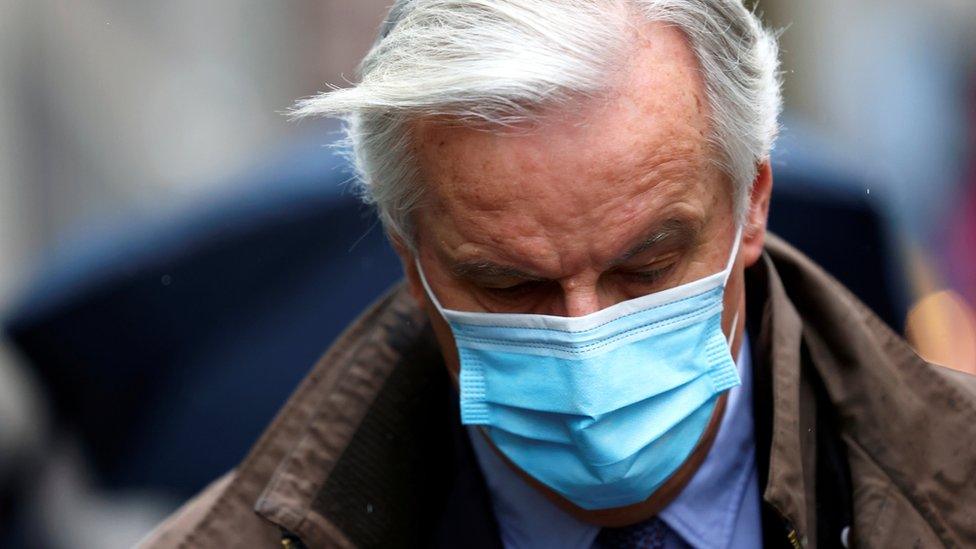Brexit: Have trade talks taken a turn for the worse?
- Published

Michel Barnier and his team were working late into the night with their UK counterparts
To do business with each other from January, the UK and the EU agree there will have to be some shared rules.
It's called the level playing field, if you want to use the jargon, and you can read about it in all the detail you want here.
But again and again, the two sides have clashed over who should be in charge of the rules and, particularly, what happens if things go wrong.
Alongside who gets to catch fish in whose waters, this part of the talks has been the most problematic.
Late on Wednesday though, there were signs that a deal was nearly concluded.
The pizzas fuelled the negotiators into what seemed like a good place - you can read about the state of play last night here.
A swift deal was not inevitable, but it certainly felt like the jigsaw pieces were lining up, with sources on both sides of the Channel agreeing that agreement on Friday or Saturday could be very lightly pencilled in.
But after another day of talks on Thursday, just before 19:00 GMT, things seemed to take a turn for the worse.
UK sources said the talks had "gone back 24 hours", claiming the EU has toughened its stance on an independent regulator to police what happens if the shared rules and regulations are broken, and things go wrong.
A senior government source told the BBC: "At the eleventh hour, the EU is bringing new elements into the negotiation. A breakthrough is still possible in the next few days but that prospect is receding."
'Last minute drama'
It's been claimed that the French government has been leading a charge for a more robust system of oversight, trying to push the UK into a position they cannot accept.
An EU source told the BBC the talks were in difficulty and had become "extremely sluggish", confirming that the main point of tension was over enforcing the rules and regulations.
But another EU insider suggested the UK might just be posturing, and that there was bafflement at the suggestion anything new was put on the table - the theatrics, perhaps, in the closing moments of the negotiations.
Frankly, at the moment, it is extremely hard to work out exactly what is going on - although we know for sure the negotiators are still hard at it (Thursday's food delivery was from the food chain Leon.)
Every Brexit negotiation has had last minute dramas, where very often, just in the nick of time, victory is snatched from the jaws of defeat.
It's true that both sides want a deal. It's also true that both sides can see the shape of a possible deal.
But when there is so much at stake, taking it for granted that it will happen is quite an assumption to make.
